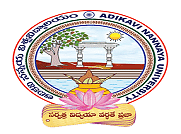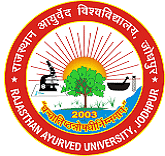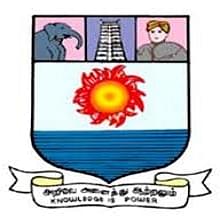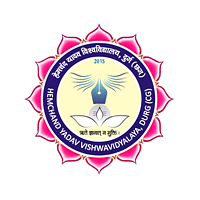Introduction about BA Pol. Sci.
A Bachelor of Arts (BA) in Political Science from the best affordable college is an undergraduate degree program that offers students a
comprehensive understanding of political systems, theories, institutions, and
practices. It is a field of study that explores the dynamics of power,
governance, public policy, and political behavior at local, national, and
international levels.
Students pursuing a BA in Political Science delve into a wide range of
topics, including :
o Political Theory: Studying
the foundational ideas and concepts that underpin political systems, including
democracy, justice, rights, freedom, and equality. This includes exploring the
works of political philosophers such as Plato, Aristotle, Hobbes, Locke,
Rousseau, Marx, and others.
o Comparative
Politics: Analyzing the political systems, institutions, and processes of
different countries and regions around the world. This involves examining
factors such as government structure, political parties, electoral systems,
civil society, and political culture.
o International
Relations: Investigating the interactions between states, international
organizations, non-state actors, and global issues such as conflict, diplomacy,
human rights, globalization, environmental sustainability, and international
development.
o Public Policy and
Administration: Examining the formulation, implementation, and evaluation of public
policies by government institutions. This includes analyzing policy-making
processes, regulatory frameworks, public service delivery, and the role of
bureaucracy in governance.
o Political Economy:
Exploring the interplay between politics and economics, including the
distribution of resources, wealth, and power within societies. This involves
studying economic theories, policies, and institutions, as well as their impact
on political decision-making and public policy outcomes.
o Research Methods: Learning
quantitative and qualitative research methods used in political science
research, including survey research, statistical analysis, case studies, and
comparative analysis. These skills are essential for conducting independent
research and analyzing political phenomena.
o Specialized Topics: Students
may have the opportunity to explore specialized topics within political science
based on their interests and career goals. This could include areas such as
environmental politics, human rights, gender and politics, conflict resolution,
public opinion, or electoral behavior.
A BA in Political Science equips students with valuable analytical,
critical thinking, research, and communication skills that are applicable to a
wide range of career paths in government, politics, law, public administration,
international organizations, non-profit organizations, journalism, advocacy,
business, and academia.
Overall, a BA in Political Science provides students with a deep
understanding of the complexities of political systems and prepares them to
engage with pressing political issues and contribute to positive social change
in their communities and the world.
How can I apply for admission to BA Pol. Sci.?
To apply for admission to the top Bachelor of Arts (BA) in Political Science university program, you typically need to follow these steps:
·
Research Programs: Start by researching
universities or colleges that offer BA programs in Political Science. Look for
institutions that have strong political science departments, relevant course
offerings, and a reputation for academic excellence.
·
Check Admission Requirements: Review
the admission requirements for each institution you're interested in. These
requirements may vary between universities but commonly include criteria such
as academic qualifications, standardized test scores, and language proficiency
(if applicable).
·
Prepare Required Documents: Gather
all the necessary documents for your application, which may include:
·
High school transcripts or equivalent academic
records
·
Standardized test scores (such as SAT or ACT)
·
Letters of recommendation from teachers,
counselors, or mentors
·
Personal statement or essay explaining your
interest in studying Political Science and your academic goals
·
Resume or curriculum vitae (CV) detailing your
extracurricular activities, volunteer work, or relevant experiences
·
Write Personal Statement or Essay: Many BA
programs in Political Science require applicants to submit a personal statement
or essay. Use this opportunity to articulate your passion for the subject, your
academic achievements, and any relevant experiences or skills you possess.
·
Request Letters of Recommendation: Reach
out to teachers, counselors, or mentors who can provide strong letters of
recommendation on your behalf. Give them ample time to write and submit their
letters before the application deadline.
·
Complete the Application Form: Fill out
the online application form for each institution you're applying to. Provide
accurate information and double-check all sections before submitting. Pay
attention to any specific requirements or supplemental materials requested by
each university.
·
Pay Application Fees: Some institutions may
require an application fee to process your application. Ensure that you submit
the required fees along with your application, if applicable.
·
Submit Application: Once you've completed all
the necessary steps and gathered all required documents, submit your
application before the specified deadline. Late applications may not be
considered.
·
Follow Up: After submitting your
application, monitor your email regularly for any updates or requests for
additional information from the admissions office. If you have any questions or
concerns, don't hesitate to reach out to the admissions office for clarification.
Prepare
for Interviews (if applicable): Some BA programs in Political Science may
require an interview as part of the admissions process. If you're selected for
an interview, prepare by reviewing your application materials, researching the
program, and practicing common interview questions.
By following these steps and staying organized throughout the
application process, you can increase your chances of gaining admission to a BA
program in Political Science. Good luck!
What is eligibility to take admission for BA Pol.
Sci.?
The eligibility criteria for admission to a Bachelor of Arts (BA) in
Political Science program can vary depending on the institution and country.
However, here are some common eligibility requirements:
§ Educational
Qualifications: Typically, applicants must have completed their secondary education or
its equivalent (such as high school or secondary school) with a satisfactory
academic record. The specific minimum grades or GPA requirements may vary
between institutions.
§ Subject
Prerequisites: While not always mandatory, some institutions may prefer applicants
who have studied certain subjects at the high school level, such as social
studies, history, government, economics, or political science. Proficiency in
these subjects may be beneficial for success in the program.
§ Language
Proficiency: Since many BA programs require instruction and coursework in the
language of instruction (usually English), applicants may need to demonstrate
proficiency in the language through standardized tests such as the TOEFL (Test
of English as a Foreign Language) or IELTS (International English Language
Testing System), especially if they are non-native speakers of the language.
§ Entrance Exams (if
applicable): Some universities or colleges may require applicants to take entrance
exams as part of the admission process. These exams may assess aptitude in
areas such as language skills, general knowledge, critical thinking, or
analytical reasoning.
§ Personal Statement
or Essay: Many BA programs in Political Science require applicants to submit a
personal statement or essay explaining their interest in studying political
science, their academic goals, and relevant experiences. This essay may be used
to evaluate the applicant's writing skills, critical thinking abilities, and
motivation for pursuing the program.
§ Letters of
Recommendation: Some institutions may request letters of recommendation from teachers,
counselors, or mentors who can speak to the applicant's academic abilities,
work ethic, character, and potential for success in the program.
§ Interview (if
applicable): In some cases, applicants may be required to participate in an
interview as part of the admissions process. The interview may assess the
applicant's communication skills, academic interests, career aspirations, and
suitability for the program.
It's important to carefully review the specific eligibility criteria and
admission requirements of each institution you're interested in applying to, as
they may vary. Additionally, admission criteria may change over time, so it's a
good idea to check the most up-to-date information provided by the
institution's admissions office or website.
What is syllabus for BA Pol. Sci.?
The syllabus at the best BA university program can vary between
universities and colleges. However, I can provide a general overview of the
typical subjects and topics that may be included in the syllabus:
v Introduction to
Political Science: An introductory course that provides an overview
of the discipline of political science, its major subfields, key concepts,
theories, and methods of analysis.
v Political Theory: Study of
major political thinkers and theories, including classical and modern
perspectives on topics such as democracy, justice, rights, citizenship,
authority, power, and ideology.
v Comparative
Politics: Analysis of political systems, institutions, and processes in
different countries and regions around the world. Topics may include forms of
government, electoral systems, political parties, civil society,
democratization, authoritarianism, and globalization.
v International
Relations: Examination of the dynamics of international politics, including the
behavior of states, international organizations, non-state actors, and global
issues such as conflict, diplomacy, security, human rights, development, and
global governance.
v Public Policy
Analysis: Study of the formulation, implementation, and evaluation of public
policies by governments. Topics may include policy-making processes, policy
analysis techniques, policy evaluation, and the role of various actors in the
policy process.
v Political Economy:
Exploration of the relationship between politics and economics, including
theories of economic development, distribution of resources, market regulation,
globalization, inequality, and the impact of economic factors on political
outcomes.
v Research Methods in
Political Science: Introduction to quantitative and qualitative
research methods used in political science research. Topics may include survey
research, statistical analysis, experimental design, case studies, content
analysis, and research ethics.
v Electoral Politics
and Political Behavior: Analysis of electoral systems, voting behavior,
political parties, interest groups, public opinion, political communication,
media influence, and the role of identity, ideology, and social cleavages in
shaping political outcomes.
v Public
Administration and Governance: Examination of bureaucratic structures,
administrative processes, public service delivery, accountability mechanisms,
and the role of government in society.
v Special Topics and
Electives: Many programs offer specialized courses and electives that allow
students to explore specific interests within political science, such as
environmental politics, human rights, gender and politics, conflict resolution,
comparative public policy, or regional studies.
v Internship or
Capstone Project (Optional): Some programs may offer opportunities for
students to gain practical experience through internships with government
agencies, non-profit organizations, or political campaigns. Alternatively,
students may complete a capstone project or senior thesis under the supervision
of a faculty mentor.












